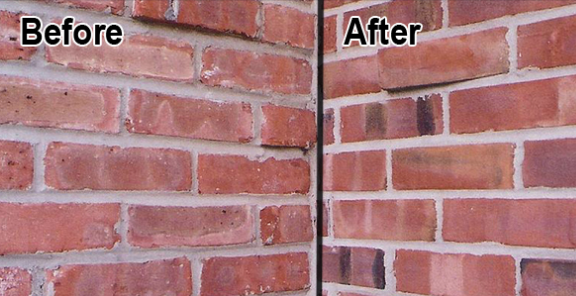Welcome to the Basement Oasis
The Basement Oasis provides homeowners with DIY solutions for repairing foundationr and concrete cracks. We make it easy by providing easy to use repair kits for injection of leaking cracks. We specialize in products and information that help DIY’ers improve the overall basement environment. Concrete wall crack repair is the easiest and method for curing water problems homeowners can use. Fortunately, repairing leaking cracks is also the most inexpensive repair you can do.
Concrete walls invariably will crack, making concrete wall crack repair very common. The cracks typically occur soon after the wall is constructed during the curing process. The initial curing lasts about 28 days but concrete steadily cures for the first two years. Concrete curing requires water to leave the concrete and, as a result, the wall shrinks and cracks.
Normally these leaking cracks are simply a nuisance and can be remedied easily and effectively through crack repair kits. Yes, do-it-yourself crack repair can be accomplished by you, the homeowner. You can permanently stop basement leaks. In cases where cracks are 1/8″ or larger, at a 45-degree angle, and offset walls are present, a structural conditional may exist. In these cases it is best to call a professional. Contact us at 1 (630) 771-0380 and we will look for a preferred contractor in your area.
Sump Pumps and Battery Backups
Pumps and battery backup pumps are an area of protection in a basement not often called upon but when it fails carries tremendous consequences. Sump pumps are installed in a plastic pit or bucket below your basement floor. A home’s exterior draintile picks up water from against the outside of the house and leads it into the pit.
The pump senses the water in the pit through the use of a float and will pump the water into the yard or local storm system. Pumps usually last 10, 15, even 20 years. The risk with pumps is they can fail without warning and leave a basement full of water. It is highly recommend to install a quality battery backup system with audible alarm for such emergencies.
Cracks in Concrete Floors
Cracks in concrete floors, like walls, are inevitable. Concrete floors, which we will refer to as slabs, shrink during the concrete curing process. Because of shrinkage, the floor will tend to crack. Slabs are commonly relieved every 12 to 15 feet by control joints or expansion joints. These joints are straight lines cutting across the slab. You will often see such joints in patios, driveways, sidewalks, etc.
Cracks such as these are necessary for relief of the slab during changes in environmental humidity and temperature. Control joints are tooled straight lines while expansion joints are often black fiber. If control joints are not tooled during the original pours into straight lines, natural cracking will occur in the same said area, though not as straight and neat. Expansion and control joints should be repaired with a flexible material where as all other repairs can be done with a rigid material.
THE RIGHT CHOICE
Yes, do-it-yourself crack repair can be accomplished by you, the homeowner. You can permanently stop basement leaks. In cases where cracks are 1/8" or larger, at a 45-degree angle, and offset walls are present, a structural conditional may exist. In these cases it is best to call a professional. Contact us at 1 (630) 771-0380 and we will look for a preferred contractor in your area.



